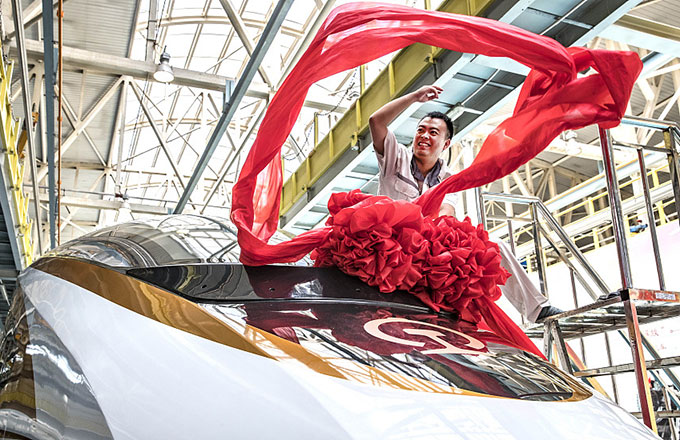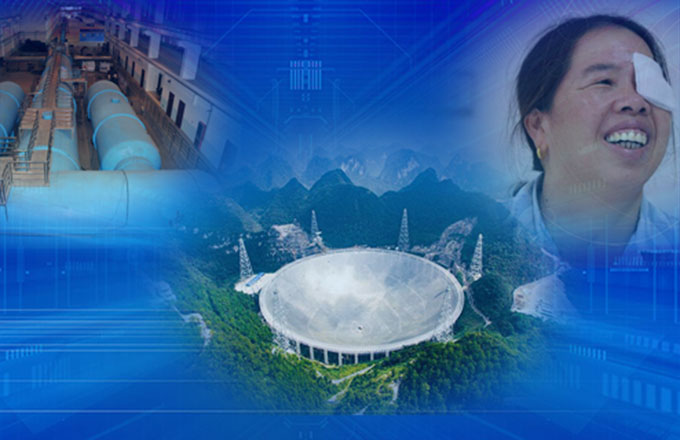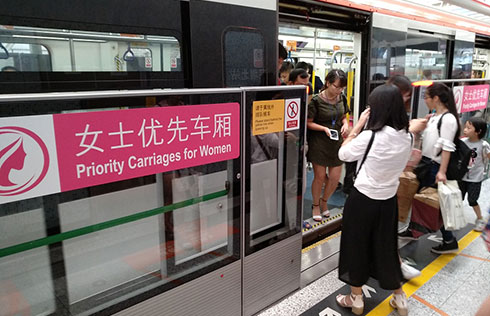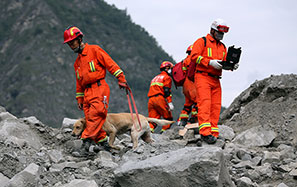Redistribution of roles to increase efficiency, vitality
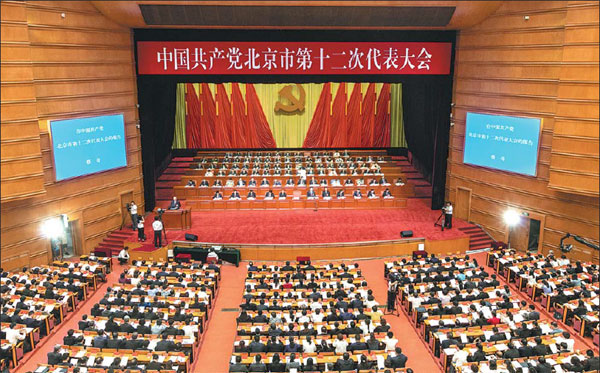 |
|
The 12th Party Congress of Beijing opens on June 19. [Provided to China Daily] |
Beijing, Tianjin and Hebei province to integrate, transfer industries and services in the coming years
Beijing will make crucial progress in the development of a harmonious international city and the integration with Tianjin and Hebei province in the next five years, Cai Qi, the capital's Party chief, said during the 12th Party Congress of Beijing on June 20 while delivering his report.
The newly elected Party chief said: "Beijing's functions will be further upgraded and strengthened as the center of China's politics, culture, international communication and technological innovation."
The city plans to enhance its support for the central government's events, raise the service level for international communications and establish a technological innovation center in the next five years, Cai said.
The planning and construction of Beijing's subcenter, Tongzhou district, and Xiongan New Area in Hebei are major components of the integration of Beijing, Tianjin and Hebei, and the reallocation of Beijing's non-governmental functions, according to Wang Haicheng, an official of the Beijing Municipal Commission of Development and Reform.
He added that the integration of Beijing, Tianjin and Hebei province is necessary for optimizing China's industrial structure.
Beijing has been strengthening cooperation with Xiongan on construction, policies and projects in sectors such as infrastructure, transportation and public services, since the establishment of Xiongan New Area in April.
Using world-leading technologies and materials, Tongzhou district has gradually increased progress in constructing transportation systems, improving the natural environment and advancing other infrastructure projects, with the support of the Beijing municipal Party committee and the Beijing municipal government
Fang Laiying, Party secretary of the Beijing Municipal Commission of Health and Family Planning said that Beijing, Tianjin and Hebei signed cooperative agreements for work on disease prevention and control, blood collection and supply, emergency healthcare and centralized procurement of drugs and equipment.
The three regions have established information sharing platforms and a drug information database to optimize the allocation of regional medical resources and improve medical services, according to Fang.
Beijing and Hebei have launched cooperative medical projects in the past three years. Beijing, Tianjin and Hebei launched a pilot project for image inspection and data sharing, including testing 102 medical institutions sharing 17 kinds of imaging materials.
State-owned enterprises play an important part in the Beijing-Tianjin-Hebei regions' integrated development, said Xu Heyi, chairman of the Beijing Automotive Group, commonly known as BAIC Group.
The Chinese automobile group put forward a strategy for its transformation from a manufacturer and service provider to an innovator, Xu said.
In 2014, BAIC Group signed an agreement with the Hebei government and planned to establish an automobile industry cluster in the province.
A subsidiary of BAIC Group, Beijing Hyundai established its fourth factory in Cangzhou, Hebei province, with an investment of 7.5 billion yuan ($1.1 billion). It started production in 2016 and paid taxes of more than 100 million yuan within the first two months.
The factory plans to manufacture and sell 171,000 vehicles this year, with total production capacity valued at 12 billion yuan, creating 2,000 jobs, according to Xu.
BAIC Group's new energy vehicles will contribute to the protection of the environment of Beijing, Tianjin and Hebei regions, Xu added.
The Beijing-Tianjin-Hebei region's integrated development is a national strategy, bringing in opportunities for companies, said Xue Gang, general manager of Beijing Capital Agribusiness Group.
Ten years ago, CAG started to cooperate with the governments and enterprises of Tianjin and Hebei to build demonstration projects to lead the development of modern agriculture, said Xue.
CAG has worked with Tianjin and Hebei to undertake the industrial transfer of Beijing and promote the transition of poultry breeding, food processing and vegetable production.
Through advantageous ports in Tianjin, starting with the import and export trade of grains and fruits, CAG has exerted its brand's influence and integrated resources to become an international trader of agricultural products.
In the future, CAG will target the fresh agricultural product market and set up distribution centers outside downtown Beijing to increase its service capability.









